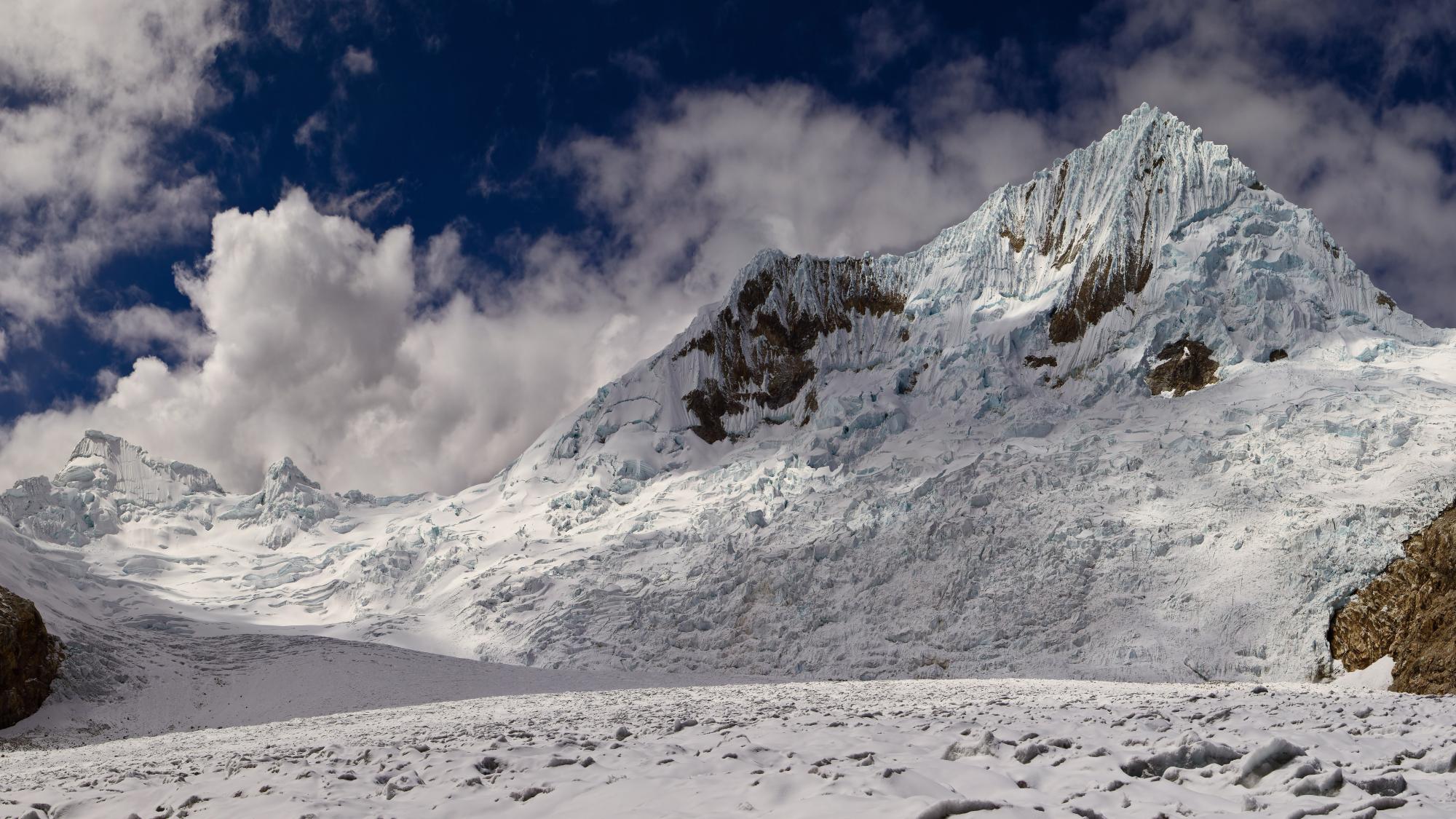
© Ben Marzeion
“It All Depends on CO2”
It is in our power to determine the rate and extent of glacier melt, says glaciologist Ben Marzeion
Ben Marzeion is, of course, pleased that his research topic is receiving more attention in the wake of the United Nations proclaiming 2025 to be the International Year of Glaciers’ Preservation. But does that change anything? As far as he is concerned, the issue of climate change, which also includes glaciers, plays too small of a role in politics and society. The ice masses have a delayed response to global warming, so our actions now determine the extent to which these will remain in the future.
Ben Marzeion considers himself to be a fundamentally cheerful person. However, watching his topic of research continue to melt is enough to sometimes spoil even his good mood. Scientists have been warning about the consequences of global warming for decades and yet little is changing. “Even if we were magically able to freeze our current climate system, 39 percent of the world’s glacier masses would still disappear,” explains the researcher. These were the findings of a recent international study in which the professor was involved at the Institute of Geography and MARUM – Center for Marine Environmental Sciences. “There is a clear relationship between the average global temperature and the amount of ice,” says Marzeion. If global warming were limited to 1.5 degrees Celsius, just under half of the ice masses would still disappear. “In the end,” says the 47-year-old, “everything depends on CO2.”
Restrictions Are Not the Solution
The repercussions of the ice melt are discussed frequently and include rising sea levels that pose a threat to islands and coastal regions, including along the North Sea; glacier collapses and rock-ice avalanches as recently witnessed in Switzerland; and diminished water levels in rivers during the summer months with immeasurable ramifications for local ecosystems and populations, particularly in Central Asia and South America. “Glaciers serve as reference points, especially in the high mountain regions. Observing these changes to nature has a profound effect on people.”
However, Marzeion, the eternal optimist, sees no reason for fatalism. “We have the capability to regulate our own emissions.” This can be achieved through the development of technologies such as wind energy, photovoltaics, and new power grids. However, the implementation gap is a significant challenge. He is skeptical about individual solutions. “In other parts of the world, people need to be empowered to live in a sustainable manner. We cannot solve the problem by restricting ourselves in the Global North. The price to be paid for solving the climate problem is not refraining from air travel, but rather accepting wind turbines and being willing to invest more in the energy transition.”

© Ben Marzeion
How Much Time Is Left to Adapt?
Marzeion’s fascination with glaciers has developed over time. Born in the city of Geldern, the researcher studied physical oceanography in Kiel, followed by stints in Bergen and Innsbruck, among others, which transformed the climate modeler into a glaciologist. This is due in part to Innsbruck’s proximity to the Hintereisferner Glacier in the Ötztal Alps, which local glaciologists have closely followed for a long time.
In 2015, Marzeion moved to the northern German lowlands. Bremen is not a location generally associated with glaciology. However, as a “remote glaciologist,” he doesn’t have to be close to the ice masses, he says with a smile. “I’ve already seen a glacier or two, but I don’t do much field work.” On a more serious note, he adds, “Many colleagues from different fields research oceans and sea level rise here. There is hardly a process in the climate system that does not affect the sea level.” Marzeion fears that one day the construction of a Weser barrier might be necessary to protect against the water masses. “The sea level will also rise by two meters on the German coasts. The question is how much time we have to adapt. This, in turn, is up to us to control with our CO2 emissions.”
Research in New Zealand
In 2019, Marzeion was one of the lead authors of the UN Intergovernmental Panel on Climate Change’s Special Report on the Ocean and Cryosphere in a Changing Climate. This year, he received the Julius von Haast Fellowship Award, which allows him to regularly travel to New Zealand for research visits over the course of three years. This will take him back to a country where he spent time as an exchange student, and also brings him closer to the ice. But scrambling around on glaciers is not what he’s after. He wants to work with local scientists, among others, to accurately determine the human impact on glacier melt. In the 2027 summer semester, Ben Marzeion and his family will move to New Zealand for half a year. “We’re looking forward to it.”